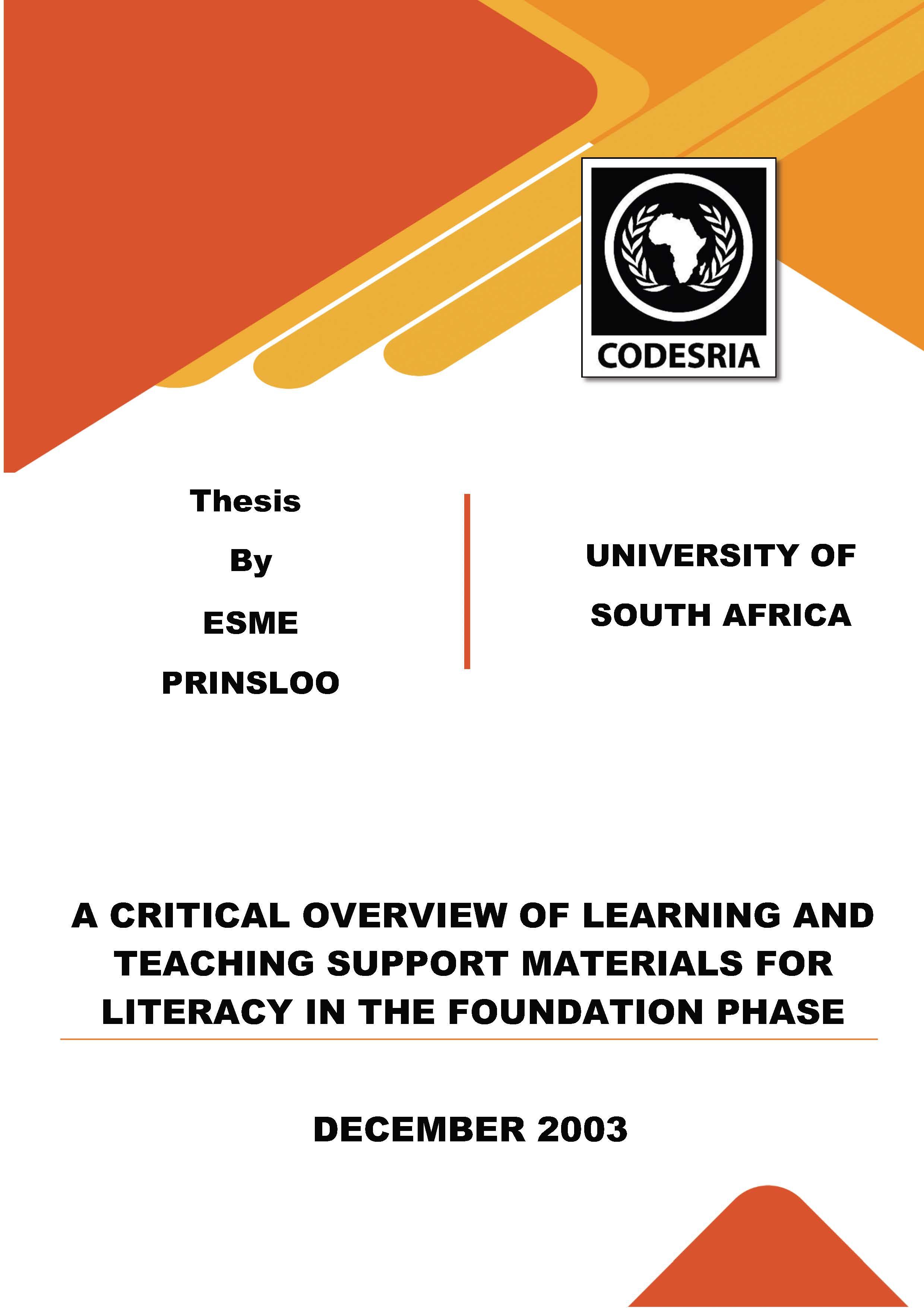A CRITICAL OVERVIEW OF LEARNING AND TEACHING SUPPORT MATERIALS FOR LITERACY IN THE FOUNDATION PHASE
Keywords:
Foundation Phase, learning and teaching support materials, literacy, Piaget, Bruner, Vygotsky, Gardner, criteria for book selection, types of reading material, teacher-authored reading material, whole language approach, literaturebased curriculumSynopsis
This study was prompted by the Report of the Review Committee on C2005 that found OBE was not being successfully' implemented in many schools because of the lack of sufficient or appropriate L TSMs. The main aim of the investigation is to
provide a critical overview of the nature of the problems experienced by many Foundation Phase teachers from previously disadvantaged schools. The problem is investigated by means of an extensive literature review and an empirical investigation, using a qualitative approach and action research. The literature review gives an overview of the role and historical development of L TSMs in key developmental eras as well as the use of L TSMs in the light of the theories of four selected learning theorists, namely Piaget, Bruner, Vygotsky and Gardner. The literature review reflects the investigation into the different types of reading material most suitable for Foundation Phase learners as well as criteria that pertain to the selection of suitable reading material for Foundation Phase learners. The research design entails focus group and individual (face~to-face) interviews as well as the
researcher's personal observations as data collection methods. ·One of the most pertinent problems that came to light was that Foundation Phase teachers in Soshanguve lacked reading material with which to implement the whole language approach. In addition, they had a limited variety of reading material available and seldom created a print-rich environment. _The problem is expounded by the fact that many schools do not have libraries that function effectively. Teacher-authored and teacher-learner-authored reading material is one solution to the problem. Criteria that would empower Foundation Phase teachers to produce developmentally appropriate reading material are given. To establish the effectiveness of the criteria, action research is undertaken. A detailed report is given on the process and outcomes of the three cycles comprising the action research component. Teachers who are empowered with this skill will be contributing towards the national ideal to address the high rate of illiteracy among the youth.
Downloads
References
Bouwer, C. & Guldenpfennirig, T. 1999. The proof of the Wordwise-pudding. Independent reading strategies in English acquired by Gr.4-learners from historically African schools in South Africa. Journal for language teaching, 33(2):93-107.
Simmons, D., Kameenui, EJ., Schumm, JS., Schumaker, J. & Lenz, K. 1998. Book preview. ERIC/OSEP mini-library on adapting instructional materials. The council for exceptional children, 30(6), August:72-77.
Sylva, K., Hurry, J. & Peters, S. 1997. Why is Reading Recovery successful? A Vygotskian critique of an early reading interyention. European journal of psychology of education, 12(4), December:272-384.
Allington, R., Guire, S., Michelson, N., Baker, K. & Shouming, L. 1995. Literature-based curriculum in high-poverty schools, in Graves, MF., Van·den Broek, P. & Taylor, BM. (eds.): The first R. Every child's right to read. New York: International Reading Association.
Au, KH. & Asam, CL. 1996. Improving the literacy achievement of low-income students of diverse backgrounds, in Graves, MF., Van den Broek, P. & Taylor, BM. (eds.):The first R.Every child's right to read. New York: International Reading Association.






